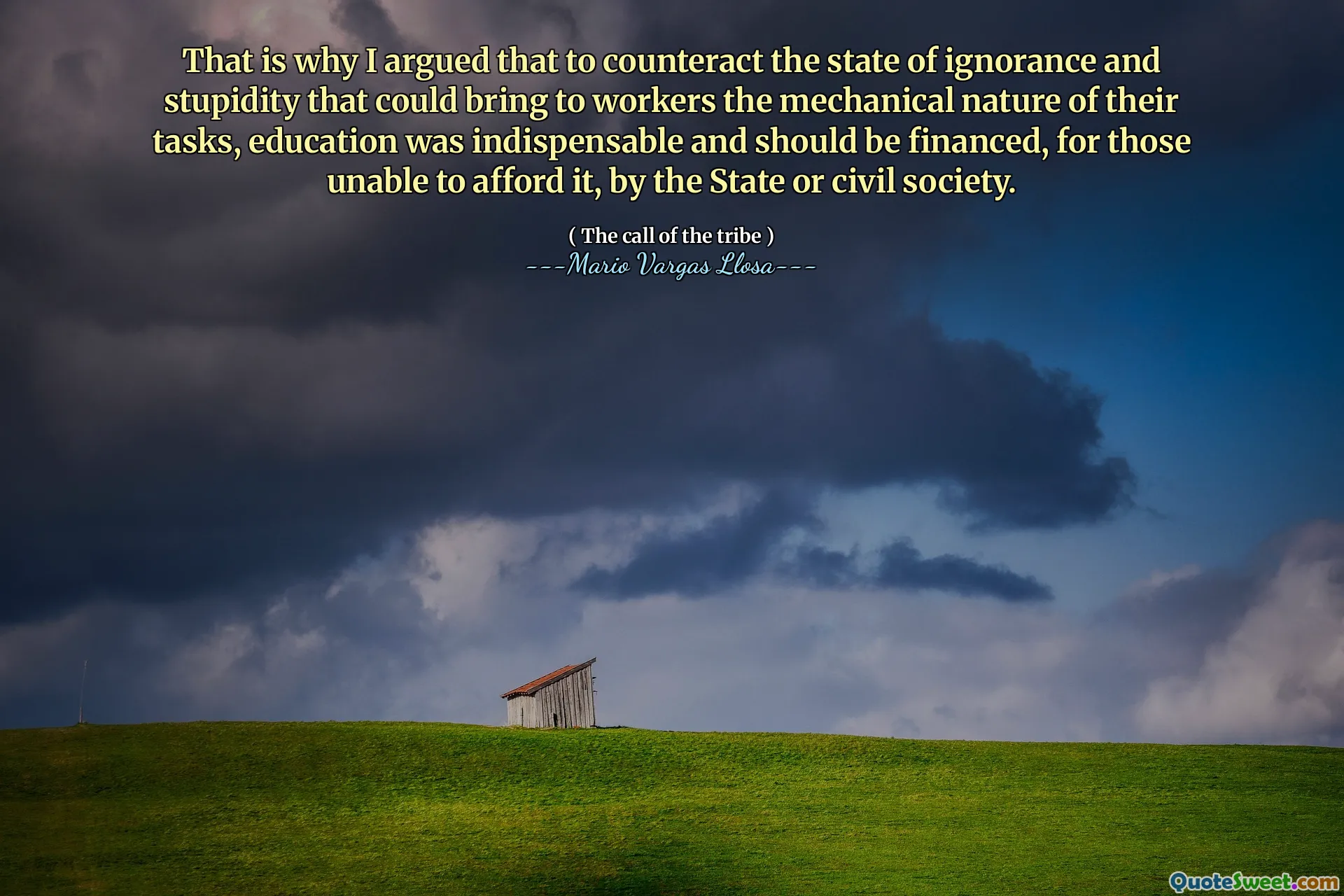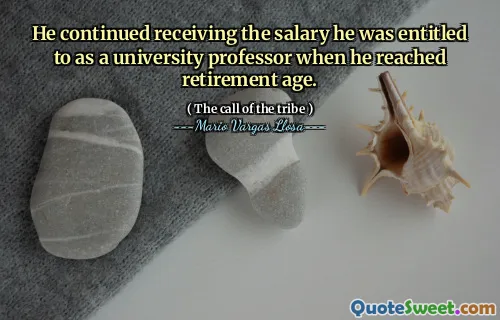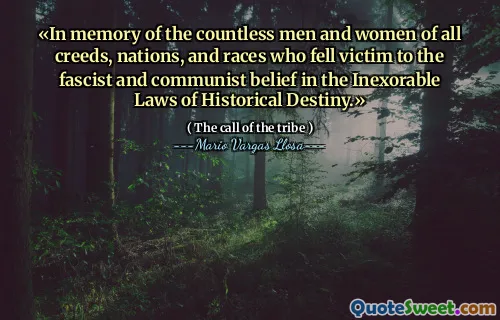
That is why I argued that to counteract the state of ignorance and stupidity that could bring to workers the mechanical nature of their tasks, education was indispensable and should be financed, for those unable to afford it, by the State or civil society.
This quote underscores the fundamental importance of education as a tool for empowerment and societal progress. It condemns the dangers of ignorance and the detrimental effects of monotonous, uncreative labor on workers' intellect and well-being. Mario Vargas Llosa highlights the necessity of accessible education, emphasizing that it should not be limited by financial barriers. Investing in education for those who cannot afford it ensures that individuals are not trapped in cycles of ignorance that hinder personal development and societal advancement. Educational initiatives act as a leveller, bridging gaps between different social strata and fostering active, informed citizens capable of critical thinking. The idea that both the state and civil society have roles in financing education reflects a shared responsibility to cultivate a knowledgeable populace. In a broader context, this perspective advocates for a democratic approach to education, where knowledge is a right rather than a privilege. It reminds us that economic development, social cohesion, and individual fulfillment depend heavily on accessible and quality education. Beyond immediate practical benefits, nurturing a well-educated society promotes innovation, civic engagement, and resilience in facing future challenges. Vargas Llosa's statement invites contemplation on the importance of collective effort in ensuring educational equity, recognizing that a learned society is essential for sustained growth and democracy.








